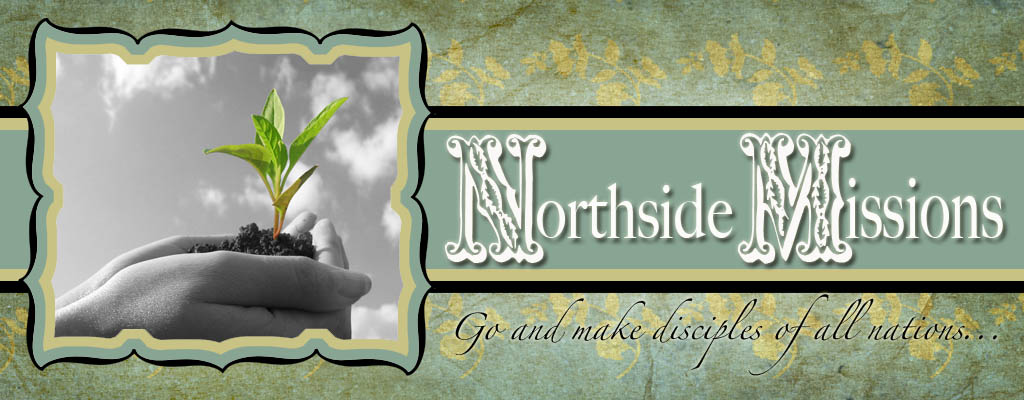Next Up: Malawi, Africa!
Our high school students and sponsors are about to embark on a life-changing mission to Malawi, Africa. Carole Bowers, the executive assistant at Northside, is going to be giving updates while they are gone.
So just where exactly is this country they are going to? Well, here's just a little bit of info on the beautiful African country of Malawi...
 Malawi is a landlocked country located in southeast Africa that is surrounded by Mozambique, Zambia, and Tanzania. Lake Malawi occupies nearly all of the country’s eastern border. The north-south Rift Valley is flanked by mountain ranges and high plateaus. In the higher elevations, Malawi is pleasantly cooler than many other African countries, but the lowlands are hot, humid, and tropical. Natural resources include limestone, hydropower, uranium, coal, and bauxite.
Malawi is a landlocked country located in southeast Africa that is surrounded by Mozambique, Zambia, and Tanzania. Lake Malawi occupies nearly all of the country’s eastern border. The north-south Rift Valley is flanked by mountain ranges and high plateaus. In the higher elevations, Malawi is pleasantly cooler than many other African countries, but the lowlands are hot, humid, and tropical. Natural resources include limestone, hydropower, uranium, coal, and bauxite.
So just where exactly is this country they are going to? Well, here's just a little bit of info on the beautiful African country of Malawi...
 Malawi is a landlocked country located in southeast Africa that is surrounded by Mozambique, Zambia, and Tanzania. Lake Malawi occupies nearly all of the country’s eastern border. The north-south Rift Valley is flanked by mountain ranges and high plateaus. In the higher elevations, Malawi is pleasantly cooler than many other African countries, but the lowlands are hot, humid, and tropical. Natural resources include limestone, hydropower, uranium, coal, and bauxite.
Malawi is a landlocked country located in southeast Africa that is surrounded by Mozambique, Zambia, and Tanzania. Lake Malawi occupies nearly all of the country’s eastern border. The north-south Rift Valley is flanked by mountain ranges and high plateaus. In the higher elevations, Malawi is pleasantly cooler than many other African countries, but the lowlands are hot, humid, and tropical. Natural resources include limestone, hydropower, uranium, coal, and bauxite. The British protectorate of Nyasaland was established in 1891 and became the independent nation of Malawi on July 6, 1964. Following 30 years of one-party rule, Malawi held multiparty elections in 1994 when a new constitution was instituted. The population is comprised of several ethnic groups, including Chewa, Nyanja, Tumbuka, Yao, Lomwe, Sena, Tonga, Ngoni, Ngonde, Asian, and European. English and Chichewa are the official languages, though others are spoken regionally.
Increasing political corruption remains an issue. President Bakili Muzuli’s government is believed to have sold 160,000 tons of reserve maize in 2000 despite signs of an imminent famine. Malawi’s food crisis has reached a point where most families do not have sufficient food to meet daily nutritional requirements and 3 million people are near starvation. The president declared a state of disaster in his country in February 2002 when a drought followed by heavy rains destroyed two seasons of crops.
In May 2004, Bingu wa Mutharika, an economist, was elected president through an election process that many consider irregular.
Nearly 90 percent of people live in rural areas and are engaged in farming. Agriculture products include sugarcane, cotton, tea, vegetables, nuts, cattle, and goats. More than 55 percent of Malawians live below the poverty threshold, and the inflation rate is 28 percent. Malawi is a very poor and densely populated nation and is ranked as one of the world’s least developed countries. Despite attempts at economic reform, the government continues to face challenges due to a rapidly growing population, the increasing number of HIV/AIDS cases, limited and poorly managed natural resources, recurrent droughts, environmental degradation, and food insecurity.
The economy of Malawi relies on substantial economic assistance from the World Bank and other nations. The government is attempting to develop a market economy, improve educational facilities, and address environmental issues, as well as deal with the escalating problem of HIV/AIDS. Adding to this, access to adequate health care is limited. The HIV/AIDS pandemic has had a significant impact on Malawi, where the prevalence rate among adults is 14.2 percent. Approximately 900,000 people in Malawi are living with the disease, and nearly 84,000 infected die each year. In addition, life expectancy has dropped, infant mortality has risen, and more than 400,000 children have lost one or both parents to the disease. From World Vision
Malawi is a beautiful country filled with beautiful people who both love God, and some who still need to hear the Good News of Christ. Join us in praying for our team as they are out there being the "body of Christ."



0 comments:
Post a Comment